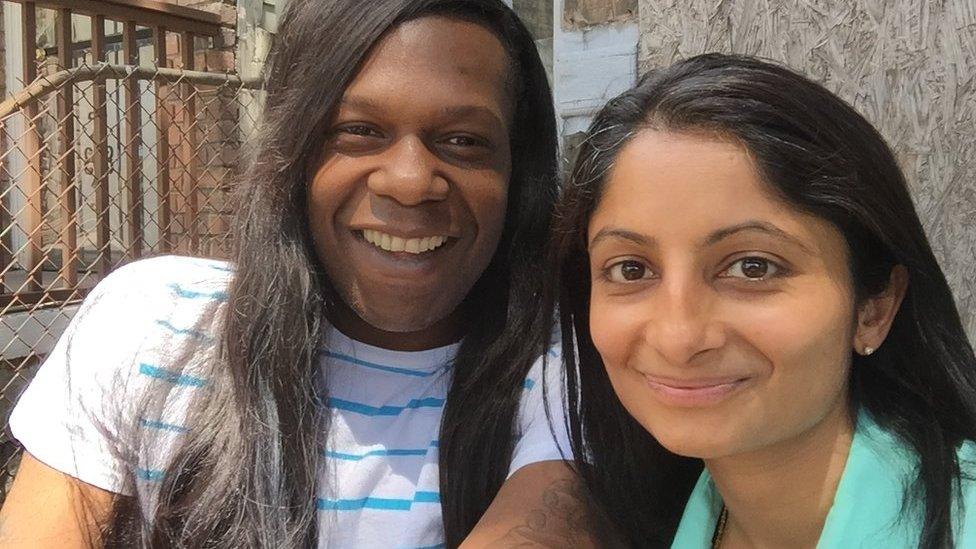Hurricane Katrina: George Bush in New Orleans 10 years on
- Published
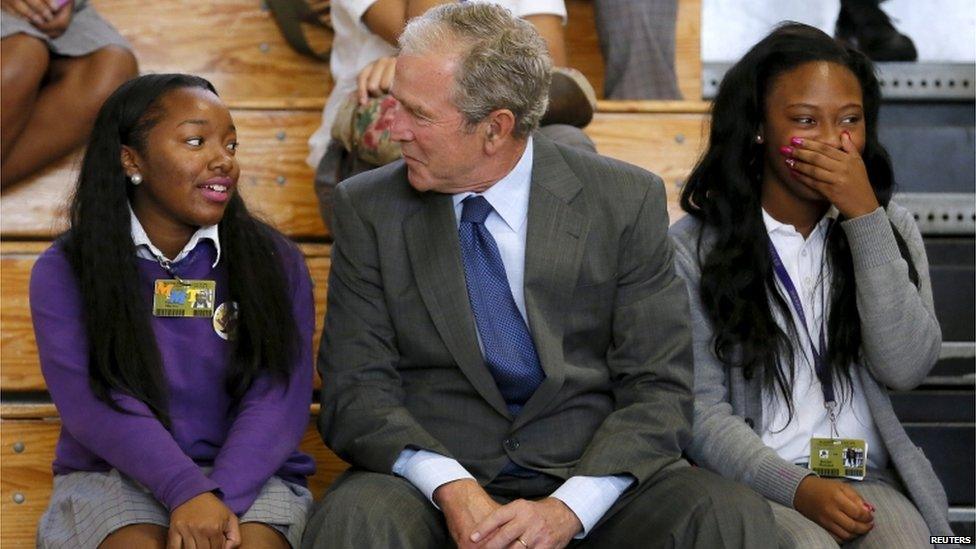
Many in New Orleans believe George Bush mishandled the crisis in 2005
Former US President George Bush has returned to New Orleans 10 years on since Hurricane Katrina, a crisis his administration was criticised for at the time over its slow response.
In a speech at a secondary school, he said he would never forget the images of "misery and ruin".
It comes a day after his successor, Barack Obama, said New Orleans was "moving on" from the disaster.
Hurricane Katrina killed nearly 2,000 people and displaced one million.
It was the most expensive natural disaster in US history, causing destruction along the Gulf coast from Florida to Texas. But the city of New Orleans, in Louisiana, bore the brunt.
George Bush's administration's slow response to the disaster remains a source of deep resentment in the city.
'Never gave up'
In a speech at Warren Easton Charter High School on Friday morning, Mr Bush praised the "resurgence" of the school system in New Orleans in the wake of the disaster.
He said Hurricane Katrina had "brought despair to what should have been a season of hope," referring to the start of the school year, when "many students had no school to return to and many had nowhere to live".
"Because of the success schools like this have achieved, it gives a message to Americans that New Orleans is back, and better than ever," he told the audience of students and teachers.
New Orleans, he said, was a city "whose levies gave out but whose people never gave up".
His wife, Laura, who also spoke, helped raise money to save the school.
Photographer Mario Tama tells the BBC what it was like to cover the disaster
On Thursday, President Obama spoke from the Lower Ninth Ward, a mostly African-American neighbourhood still recovering from the disastrous 2005 storm.
"This community centre stands as a symbol of the extraordinary resilience of this city and its people, of the entire Gulf Coast, indeed, of the United States of America," he told residents.
It was the president's ninth trip to the city since the hurricane struck. When he was a presidential candidate in 2008, he criticised his predecessor's administration for its poor handling of the crisis.

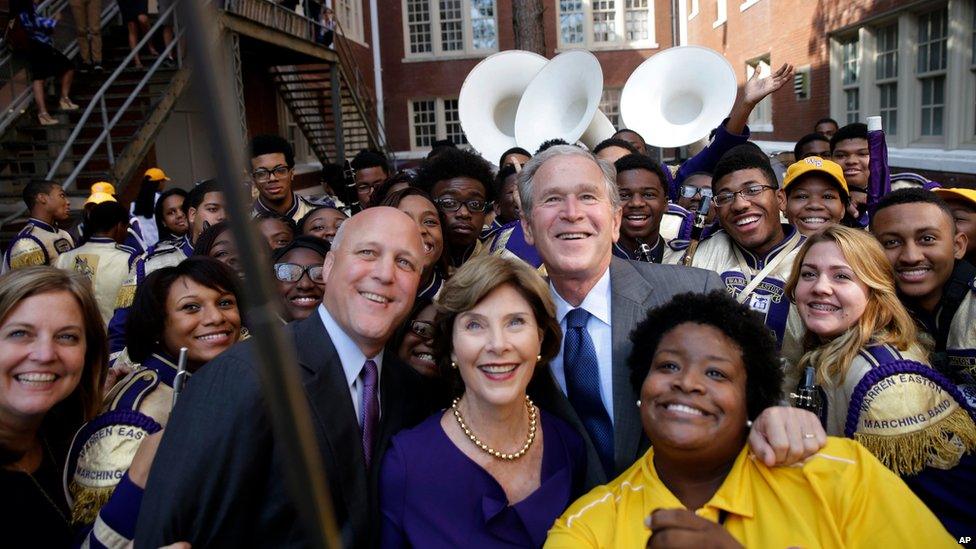
Former President Bush received a warm welcome at Warren Easton Charter High School in New Orleans
At the scene, Rajini Vaidyanathan, BBC News
Ten years ago, the idea that President George W Bush would receive several standing ovations in front of a predominantly African-American audience in New Orleans, might have been unimaginable.
But as he set foot in the Warren Easton Charter school, which had been badly flooded in the aftermath of Hurricane Katrina, all the anger appeared to have been filed to the back of people's minds.
Mr Bush was relaxed as he mingled with students in the school gym. He cracked self deprecating jokes as he delivered a speech in the main auditorium. This was a man who was fixed firmly on the future - hailing the city's efforts to improve education post Katrina. Most of the students in the audience were too young to remember Katrina vividly - one 16 year old said his parents didn't like Mr Bush, but he himself felt the president's speech was inspirational.
Outside I saw four protesters holding signs - "George Bush still hates black people," read one. For many in this city, the painful memory of Katrina will always be associated with America's 43rd president, but others no longer see it that way.

"What started out as a natural disaster became a man-made disaster, a failure of government to look out for its own citizens," he said on Thursday.
The storm broke the levees that were supposed to keep New Orleans from flooding.
But Mr Obama said on Thursday the city had since become a model for the rest of the nation "in disaster response and resilience", stressing the importance of other cities investing in storm preparation for disasters caused by global warming..
Barack Obama: "An American city dark and underwater - that was something that was supposed to never happen here, not in America"
Despite massive destruction, the city has risen anew out of the storm.
New Orleans' rebirth has been bolstered by billions of federal dollars, largely spurred by Mr Obama.
The city has recovered much of its population lost during the storm as new businesses emerge and tourists visit the city, famous for its jazz music, unique food and party culture.
Despite those strides, income inequality and crime still plague the city, which Mayor Mitch Landrieu calls "America's Comeback City."
- Published29 August 2010
- Published20 August 2015
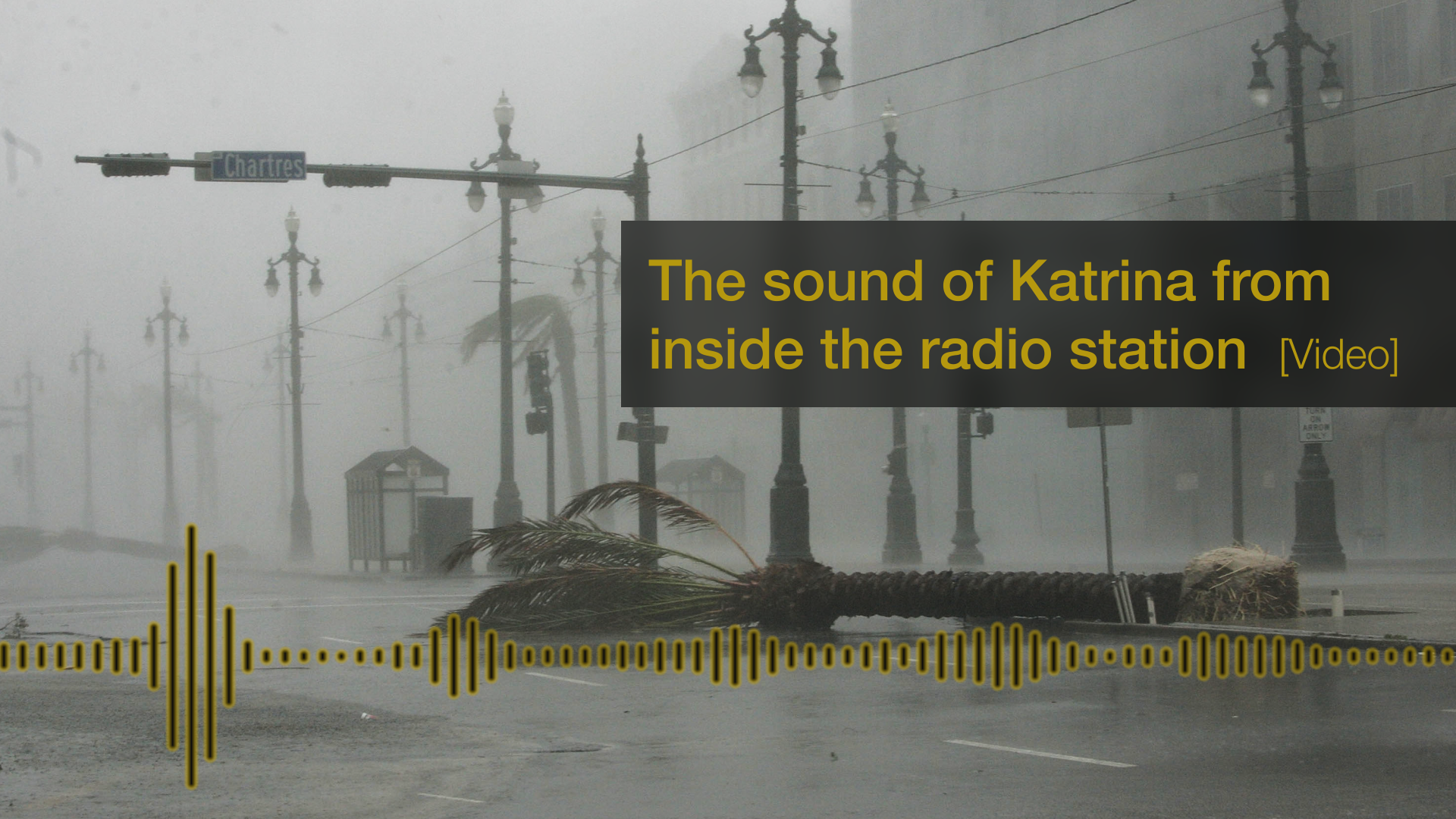
- Published20 August 2015
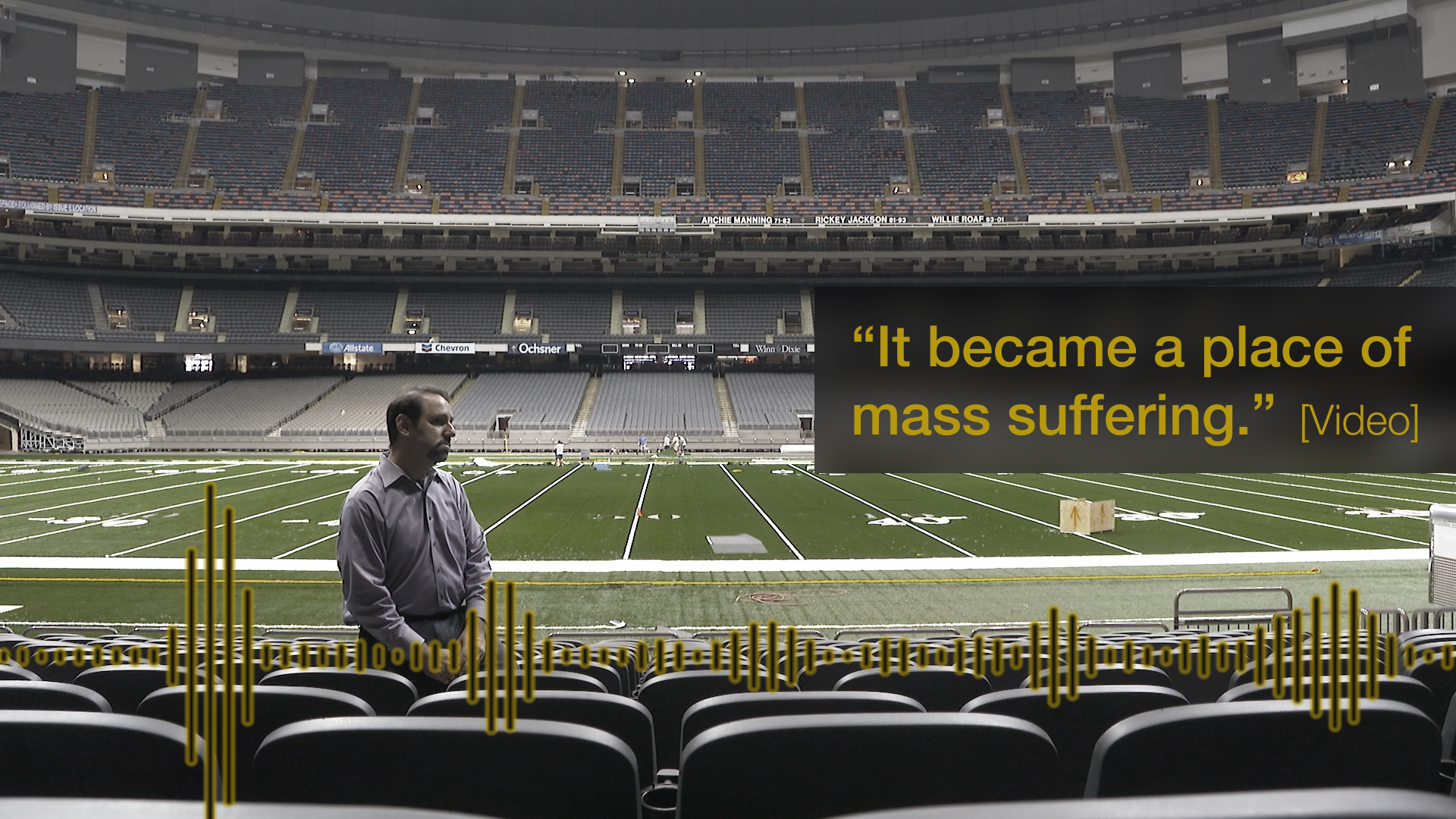
- Published27 August 2015
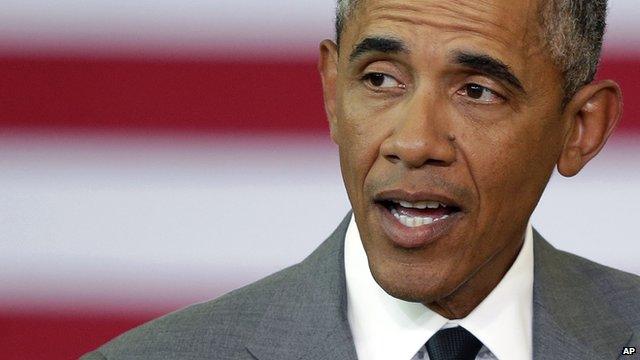
- Published29 August 2015
